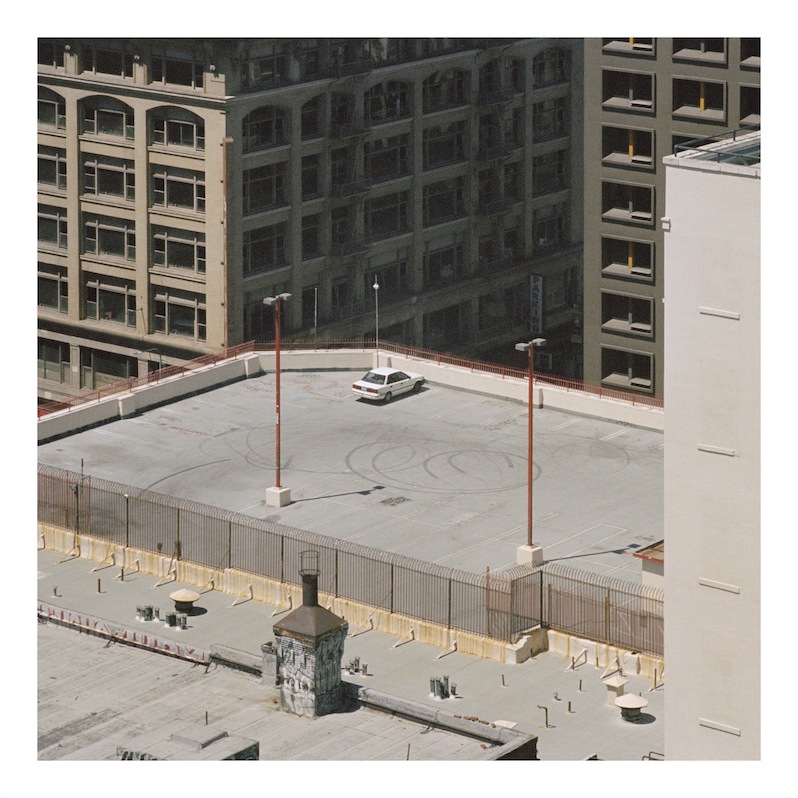Blur : The Ballad of Darren

Blur’s Ballad of Darren feels like a long goodbye, a series of melancholic farewells disguised as love songs, set in dreamy and slightly disturbing landscapes. Finality mixed with rejuvenation and reconnection, Ballad is a collection of stories about the band’s shared experiences that, as listeners, we’ll never really know about. Depending on your mood, the album could be less about the bonds of personal friendships and more about existential angst and purpose.
The low-key opener, “The Ballad,” about a tearful relationship—the subject of many songs here—jumps right in with familiar regrets and honest, sweeping strings. As he reminisces over good times gone, vocalist Damon Albarn assures the listener he’s not afraid of what’s to come. As a response to “The Ballad,” the mood picks up on the bright, electro-pop-oriented “Barbaric,” even when the lyrics don’t match its ’60s bubblegum positivity. The chorus “We had lost the feeling that we thought we’d never lose / It is barbaric,” hints at how conflicting goals led them on different paths. They seem shocked that they made it this far. Sometimes just admitting there are bruises can start the healing.
“All of us carry trauma,” Albarn sings. That trauma lives all around us, and is present throughout the album. On “St. Charles Square,” ghosts fade in and out. Strange shadows crawl out of the woodwork, a reminder that none of us are permanent. These are nostalgic, heartfelt tunes that signal Blur has come full circle spiritually and personally, and accepted their own place in the canon of British music.
Certainly, other Blur albums have been more upbeat. There’s none of the buzzy catchiness of “Song 2” or the lighter, purer Britpop sound of “There’s No Other Way,” or the warehouse rave mentality of Leisure’s “She’s So High.” Ballad is stripped of its carefree roots; it’s less Britpop and more pensive. The euphoria and community they helped create during the early ‘90s has been folded up and put away. This older, wiser Blur is more concerned with preserving friendships than with Parklife and whether to leave the house before the dustmen get there. They’re not settling for a sadder alternative, they’re just growing up.
They couldn’t be clearer on this point than on the kaleidoscopic “Goodbye Albert,” where the band again addresses its previous volatility, touring days, splitting up. Bravado is replaced with humbleness. There’s a sense, maybe of relief, that at some point none of this will matter.
Blur has seen their fair share of broken relationships. After initially struggling to achieve success, they helped spearhead the Britpop movement, sparred spectacularly with Oasis, and gained popularity with Parklife and slightly outrageous hits like “Girls & Boys.” Over time, Albarn’s interest in hip-hop and electro-pop grew, and the band fractured further, prompting guitarist Graham Coxon to depart while 2003’s Think Tank was under way. At times, the members of Blur came to blows. Albarn left for his solo electro hip-hop project Gorillaz.
After Blur’s prior album The Magic Whip in 2015, the band went on a years-long hiatus. Several compilation albums ensued along the way. Once “the best of” stage is reached, whatever is left is often secondary. But there are uplifting moments, and Blur is not done. The Ballad of Darren proves their pop roots, Beatles influences, and everything else they’ve learned along the way have remained intact.
“Russian Strings” seems heavily influenced by John Lennon’s early solo song work like “Watching the Wheels,” which sits back and takes value in normalcy. The Polynesian-inflected, silly, warped guitar plucks on “Russian Strings” seem to say the band is just happy to have been on the ride. Past tracks and memories of old days roll by like a shaky black-and-white film. After such a long absence, there’s a palpable sense of joy emanating from the band that they could recover some of their previous magic.
The biographical “The Narcissist” continues their inward search and reflection, with Albarn recounting acid trips and overdoses. “With godspeed I’ll heed the signs,” Albarn promises as a haze of guitars ends the song. Despite the title, he sounds humble and grateful. Vocally, Albarn has deepened and become more exposed and honest, taking time within the measures.
The last three tunes are a pictorial sunset, offering hints there may be more of that youthful euphoria left in the tank. Starry eyed and wistful, the blissful “Far Away Island” could be just a few nautical miles from Plastic Beach, Albarn’s third album with Gorillaz. Music like a calliope drifts in and out. “Far Away Island, I miss you / I know you think I must be lost now, but I’m not …. anymore” is a reminiscent, thoughtful storybook phrase carefully delivered.
“Avalon,” another grand goodbye, features a gorgeous Penny Lane-twinged brass melody that meanders between notes of piano, percussion and Albarn’s easygoing vibrato as he describes a life “half-full.” While “Avalon” is the album’s big-band moment, “The Heights” is a fitting bookend to these pretty chapters. Was the rest of Ballad, and the fun and success they’ve enjoyed since 1990, just a momentary blip, it asks. The song ends in static and noise as notes expand into nothing but overlapping bits and bytes, “something so momentary that you can’t even feel it.” If The Ballad of Darren is to be their last album, then they’ve found themselves in the right place.
Label: Parlophone
Year: 2023
Similar Albums:




